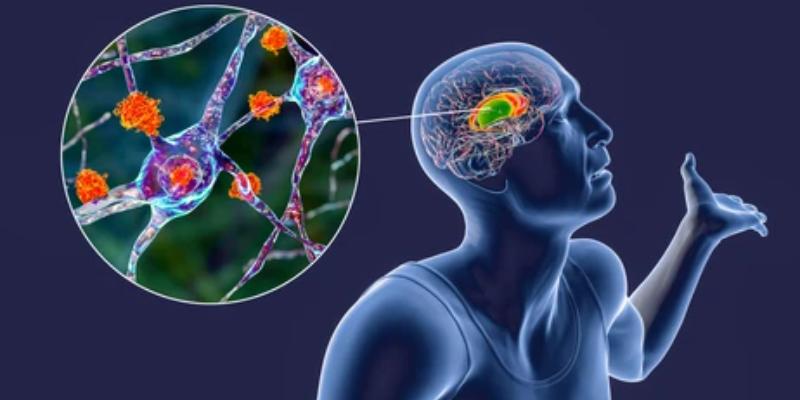Irritable Bowel Syndrome (IBS): A Complete Guide To Causes And Treatments
Advertisement
Irritable Bowel Syndrome (IBS) is a prevalent gastrointestinal disorder that affects millions of people worldwide. Although it isn't life-threatening, IBS can significantly impact a person's quality of life. The condition is characterized by chronic discomfort, including abdominal pain, bloating, and irregular bowel movements. Understanding the causes of IBS and exploring available treatment options is crucial for managing this condition effectively.
This guide provides an in-depth look into the potential causes of IBS and outlines the most effective treatments, entrusting you to take control of your digestive health.
What is Irritable Bowel Syndrome (IBS)?
Irritable Bowel Syndrome (IBS) is a chronic disorder that affects the large intestine, causing a variety of gastrointestinal issues such as abdominal pain, bloating, and irregular bowel movements. While IBS is not associated with any visible damage or inflammation in the digestive system, it disrupts normal intestinal functioning. Symptoms of IBS can vary from person to person, and the condition often requires ongoing management. Although IBS is lifelong, the intensity of symptoms can fluctuate, and many individuals experience periods of remission.
Causes of IBS:
- Gut Motility Disorders:
One of the primary causes of IBS is disrupted gut motility, which refers to the movement of food and waste through the intestines. In IBS, the muscles of the intestines may contract too forcefully or not enough, resulting in diarrhea or constipation. These abnormal contractions cause bloating, cramping, and discomfort. The exact cause of this abnormal motility is not entirely understood, but it is believed that abnormalities in how the nervous system communicates with the digestive system may be involved.
- Abnormal Gastrointestinal Function:
IBS is often linked to dysfunction in the communication between the brain and the gut, known as the gut-brain axis. The gut-brain axis involves complex signaling that controls digestion. In individuals with IBS, this communication is impaired, leading to an exaggerated response to normal digestive processes. As a result, people with IBS often experience increased sensitivity to abdominal distention and bowel movement changes, resulting in pain and discomfort. This disruption may also trigger changes in motility, causing diarrhea or constipation.
- Infections or Food Sensitivities:
IBS can sometimes be triggered or worsened by gastrointestinal infections. Post-infectious IBS may develop after a bacterial or viral infection in the intestines, such as gastroenteritis. Additionally, food sensitivities or intolerances, such as lactose intolerance or gluten sensitivity, can contribute to the development of IBS. These sensitivities can irritate the digestive tract, leading to symptoms like bloating, gas, and diarrhea.
- Stress and Emotional Factors:
Psychological factors such as stress, anxiety, and depression have a significant impact on IBS. The relationship between stress and IBS is well-documented, as emotional distress can exacerbate symptoms. The gut is particularly sensitive to stress, and stress hormones can interfere with digestion, leading to increased abdominal pain, bloating, and irregular bowel movements. Individuals with IBS may have an overactive stress response that contributes to symptom flare-ups. Managing stress through relaxation techniques and therapy can be a key component of IBS treatment.

Diagnosis of IBS:
Diagnosing IBS is not straightforward, as no specific test confirms the condition. Instead, doctors diagnose IBS based on a patient's medical history and symptoms and by ruling out other possible causes of the symptoms. A doctor will conduct a physical exam and may perform various tests, such as blood work, stool samples, and imaging studies, to exclude other gastrointestinal conditions.
In some cases, a colonoscopy or endoscopy may be necessary to rule out conditions such as inflammatory bowel disease (IBD) or colorectal cancer. The diagnosis of IBS is typically made using the Rome IV criteria, which focuses on symptoms like abdominal pain, bloating, and changes in bowel movements.
Treatment Options for IBS:
Though IBS cannot be cured, various treatment options can help alleviate symptoms and improve the quality of life for those affected. The goal of treatment is to address the root causes of IBS, manage symptoms, and reduce flare-ups.
- Dietary Changes:
- Low FODMAP Diet: One of the most effective dietary approaches for managing IBS is the Low FODMAP diet. FODMAPs (fermentable oligosaccharides, disaccharides, monosaccharides, and polyols) are a group of short-chain carbohydrates that can cause bloating and discomfort in the intestines. By eliminating high-FODMAP foods and gradually reintroducing them, many IBS sufferers report symptom relief. This diet should be followed under the guidance of a healthcare professional, as it can be restrictive.
- Fiber-Rich Diet: Increasing dietary fiber can help regulate bowel movements and improve digestion. Soluble fiber in foods like oats, beans, and certain fruits and vegetables is particularly beneficial for IBS sufferers. Fiber helps absorb excess water in the intestines, preventing diarrhea and promoting regular bowel movements in individuals with constipation.
- Probiotics: Probiotics are beneficial bacteria that support digestive health. Probiotics can help restore a balanced gut microbiome for individuals with IBS, which may alleviate symptoms such as bloating and abdominal pain. Probiotics are available in supplement form and can also be found in fermented foods like yogurt and kefir.
- Medications:
Several medications can be prescribed to help manage IBS symptoms:
- Antispasmodics: These drugs help relax the muscles of the intestines, reducing cramps and abdominal pain.
- Laxatives: For IBS with constipation, laxatives can help stimulate bowel movements and relieve constipation.
- Anti-Diarrheal Medications: Diarrhea-predominant IBS can be managed with anti-diarrheal medications, such as loperamide, which slows down bowel movements and reduces urgency.
- Antidepressants: Low-dose antidepressants, such as tricyclic antidepressants or selective serotonin reuptake inhibitors (SSRIs), are sometimes prescribed to reduce pain and regulate bowel function, especially in individuals with anxiety or depression.

- Lifestyle Modifications:
Along with dietary changes and medications, lifestyle modifications can be crucial for managing IBS. Regular physical activity helps improve digestion, reduce stress, and promote overall health. Staying hydrated, getting adequate sleep, and practicing relaxation techniques like yoga or deep breathing can also be beneficial in managing IBS symptoms.
Conclusion
Irritable Bowel Syndrome is a complex condition that requires careful management. While the exact cause remains uncertain, it is clear that a combination of factors, including gut motility, stress, and an imbalanced gut microbiome, play a role in its development. Fortunately, many effective treatments are available, including dietary changes, and medications that can significantly reduce symptoms and improve quality of life.
If you suspect you have IBS or are struggling with symptoms, consulting with a healthcare professional is the first step toward developing an effective treatment plan. An early treatment approach can help you regain control over your digestive health.
Advertisement












